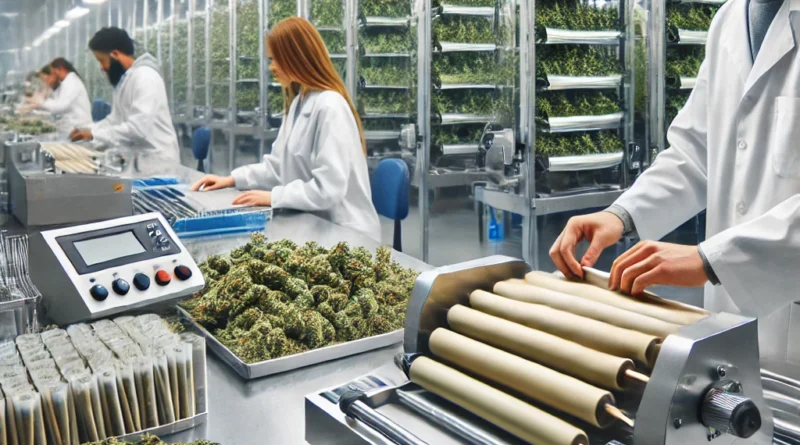New Opportunities for Pre-Roll Segment
Introduction
The pre-roll industry has seen significant growth in recent years, establishing itself as one of the most lucrative sectors within the cannabis market. With the potential rescheduling of cannabis from Schedule I to Schedule III, the industry is poised to experience even greater opportunities. This change will bring new money, attract new consumers, and inspire the creation of new products. The key to thriving in this new landscape will be leveraging these opportunities effectively.
Key Takeaways
- Increased Revenue from Tax Savings: The removal of the 280E tax code will allow pre-roll manufacturers to save on taxes, enabling them to reinvest in their businesses by upgrading products, enhancing marketing efforts, and acquiring new equipment.
- Surge in New Consumers: The rescheduling could attract new customers who were previously hesitant to try cannabis, driving up sales and necessitating increased marketing budgets to capture this new audience.
- Enhanced Product Development through Research: Easier access to cannabis research will lead to a better understanding of the plant and potentially result in the development of new and innovative products.
- Importance of Consistency: Maintaining a consistent product quality will be crucial in building and retaining a loyal customer base, especially with increased competition and potential FDA involvement in ensuring product standards.
- Preparation for Interstate Commerce: While interstate commerce is not yet legal, preparing for it by establishing a loyal customer base and ensuring high-quality products will be vital for long-term success.
New Money
With the rescheduling of cannabis to Schedule III, the burdensome 280E tax code, which currently affects all plant-touching cannabis businesses, will be lifted. This change will open up numerous opportunities through tax savings. Pre-roll brands should anticipate intensified competition as new operators enter the market and existing brands gain more revenue to invest in marketing and new product lines.
Pre-roll manufacturers can use these tax savings to improve their products by selecting higher-quality flower over leftover shake and trim, updating branding and packaging to attract consumers, and investing in new equipment like automatic pre-roll rolling machines, which offer better product consistency than traditional cone-stuffers.
New Consumers
The federal rescheduling of cannabis could also lead to an influx of new customers who may feel more comfortable trying cannabis once its legal status changes. Utilizing the savings from the removal of 280E to enhance marketing efforts and target this new audience could significantly boost sales. Establishing a loyal customer base now will be essential, as the industry moves closer to interstate commerce, which could eliminate state-specific market silos.
New Products
The combination of new money and new consumers will naturally lead to the development of new products. Additionally, the rescheduling will facilitate more cannabis research, allowing scientists to explore the plant’s effects more thoroughly. This research could inform the creation of new products, particularly those tailored to specific strains and their interactions with the human body.
Consistency Will Reign Supreme
The shift to Schedule III will emphasize the importance of product consistency, a critical factor for brand success. The FDA’s involvement will likely raise the bar for consistency, especially in medical markets. Pre-roll manufacturers should focus on producing a consistent pre-roll experience that burns evenly, pulls easily, and delivers the same effects each time. Upgrading to a rolling machine, like the BlackBird, which produces evenly packed joints, will help achieve this level of consistency.
Prepare for Schedule III
Although the transition from Schedule I to Schedule III will take time, it is crucial for pre-roll manufacturers to start preparing now. By upgrading products, enhancing marketing strategies, and investing in better equipment, brands can position themselves to thrive in this evolving industry landscape. RollPros offers support in navigating these changes and ensuring that pre-roll manufacturers are ready to capitalize on the new opportunities that Schedule III will bring.
Conclusion
The potential rescheduling of cannabis to Schedule III presents a unique opportunity for the pre-roll industry to expand and innovate. By leveraging tax savings, attracting new consumers, developing new products, and maintaining product consistency, pre-roll manufacturers can position themselves for success in this new era. Preparing for these changes now will ensure that brands are well-equipped to thrive in an increasingly competitive market.

